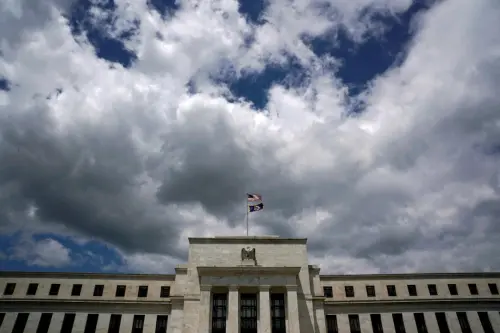Investors are finding some reassurance in the U.S. Federal Reserve's wait-and-see approach after experiencing turbulence from tariff-related issues that threaten markets and the economy.
Since returning to the White House on January 20, the rapid tariff policies of the U.S. President have dented consumer and business confidence. Investors are weighing the prospect of a pro-business, deregulatory, and lower tax agenda against concerns over a potential trade war and recession.
Fed policymakers signaled a cautious stance by leaving interest rates unchanged while acknowledging rising risks to both growth and inflation. The U.S. central bank remains hesitant to anticipate a lasting surge in inflation or significant economic disruption from the President’s trade policies. Chair Jerome Powell emphasized that uncertainty is high and that the central bank is awaiting greater clarity—a message that resonated with the markets.
"The Fed is in tune to the economic risks," said Josh Emanuel, chief investment officer at Wilshire. "There’s a clear acknowledgment that this is a period of tremendous uncertainty, and it would be somewhat irresponsible for them to suggest a meaningful shift in policy without clarity on what administrative policies will look like."
Futures bets in money markets showed that traders now expect 68 basis points in interest rate cuts this year, an increase from about 56 basis points earlier in the day before the Fed's decision.
Following the Fed's announcement, stocks rose, with the benchmark S&P 500 increasing by 1.1% for the day. In contrast, benchmark 10-year Treasury yields fell by about four basis points.
Despite this, the S&P 500 index has fallen by approximately 8% over the past month, erasing all its gains since the President's election in November. Investor worries about recession and global trade tensions are evidenced by the spreads between corporate bond yields and U.S. Treasuries, which recently reached their widest in about six months.
A nearly unanimous majority of economists indicates heightened recession risks. Surveys of business and consumer confidence have deteriorated, and administration officials acknowledge that their policies could be painful, at least temporarily.
"We were on a solid trajectory at the start of the year, but policy uncertainty is curbing consumer spending and will restrain corporate capital expenditures," said James Camp, managing director of strategic income at Eagle Asset Management. "Whether that lasts 100 days or four years is the question."
Markets will closely watch the administration's implementation of new reciprocal and sectoral tariffs.
"It's all going to come down to the administration's sporadic implementation of tariffs and how that will impact consumers," said Jason Britton, president and chief investment officer of Reflection Asset Management.
While investors are finding comfort in a vigilant Fed, Britton is not advising clients to adjust their investment portfolios. "I didn't hear anything that indicated a structural shift in the Fed's thinking," he stated.
Others share this cautious approach. Brendan Murphy, head of fixed income for North America at Insight Investment, continues to favor Treasuries and corporate bonds. He predicts that 10-year Treasury yields, which move inversely to prices, will decline to 3.9% over the next year, down from 4.25% on Wednesday.
Emanuel at Wilshire noted that he remains cautious about risk exposure. "We are tighter in our active risk compared to our benchmarks because there’s so much uncertainty regarding tariff policy."
On a more positive note for investors, the Fed announced a slow-down in quantitative tightening (QT). During a previous round of QT in 2019, the Fed had to intervene due to falling bank reserves, which led to a spike in costs for banks and market players seeking overnight loans to fund their trading. Conscious of past difficulties, the Fed is adjusting its QT approach as a binding government debt cap this year could complicate its ability to assess market liquidity.
"They're definitely trying to ensure market stability," said Clayton Triick, head of portfolio management for public strategies at Angel Oak Capital.
